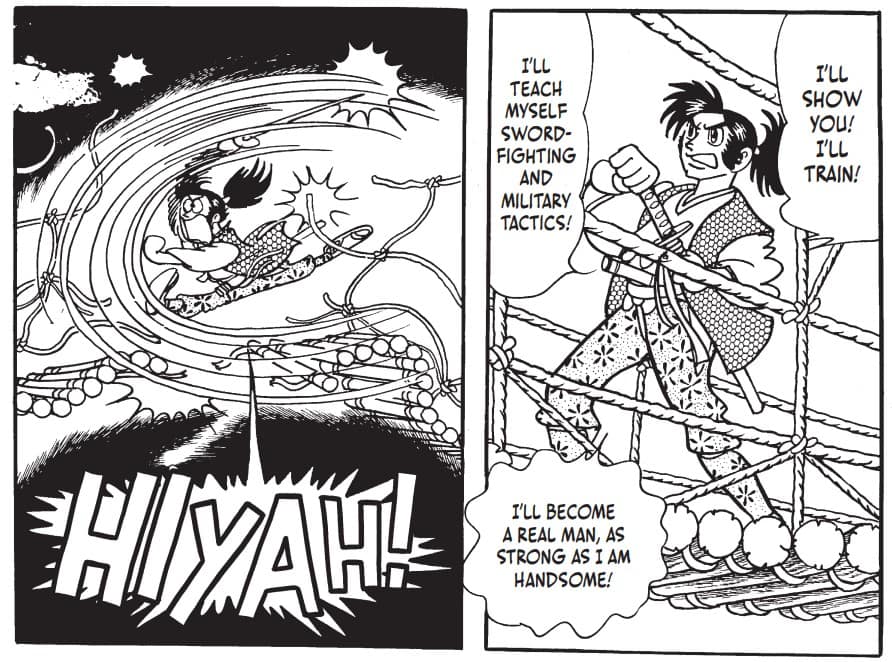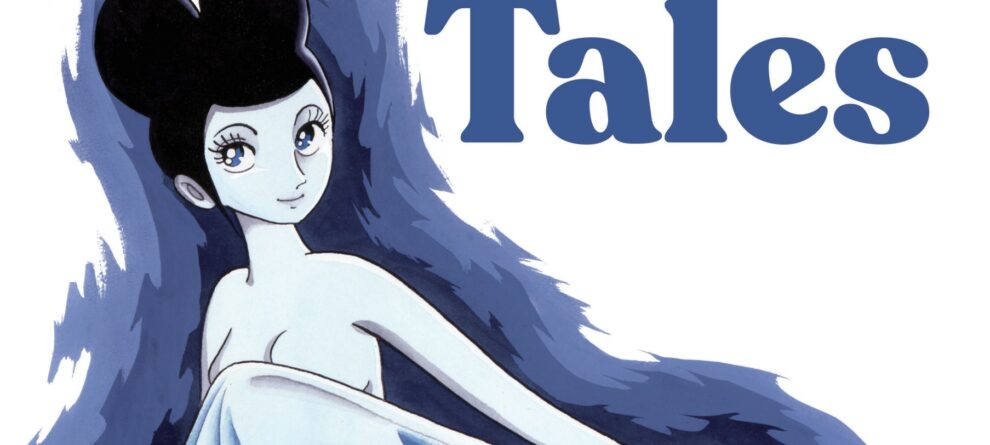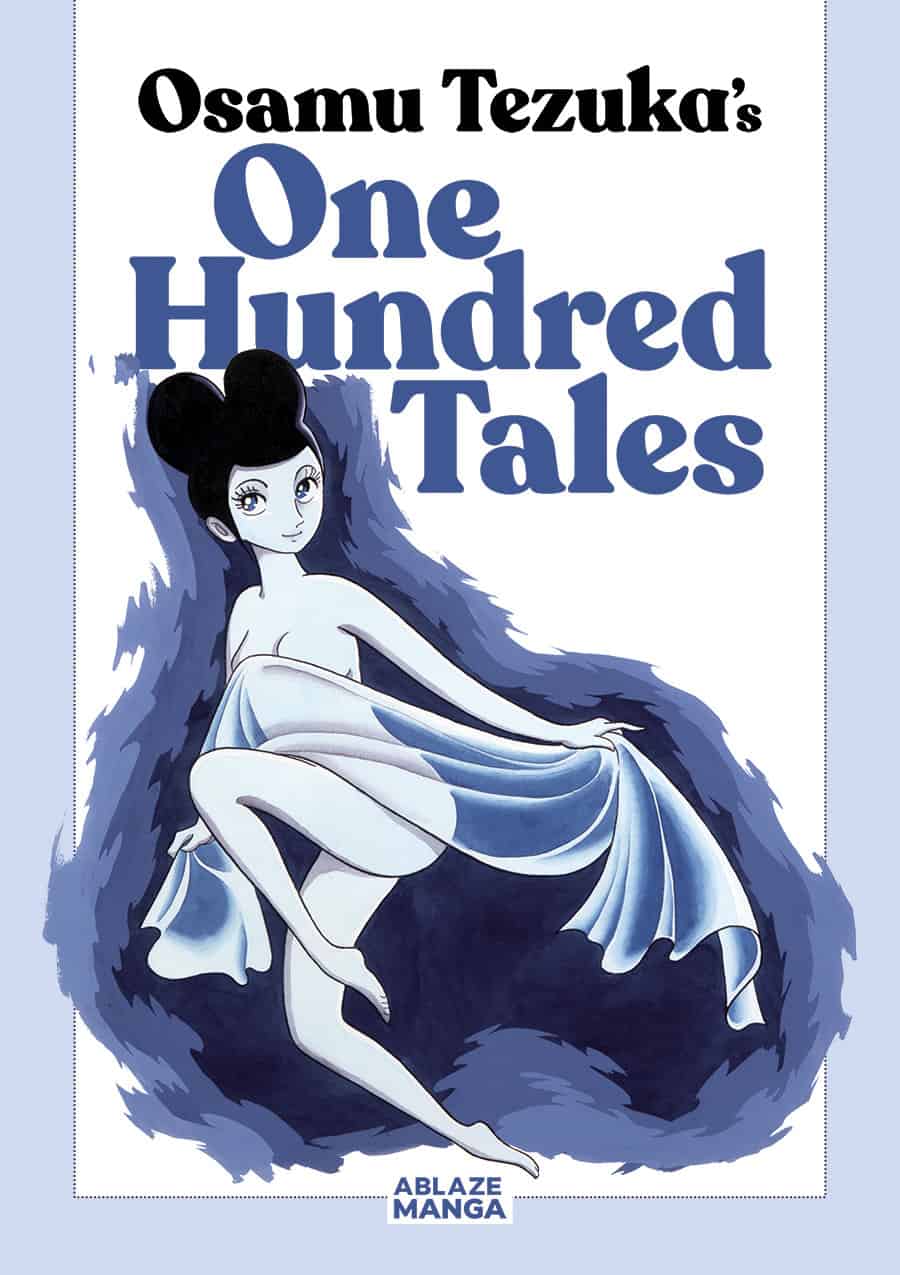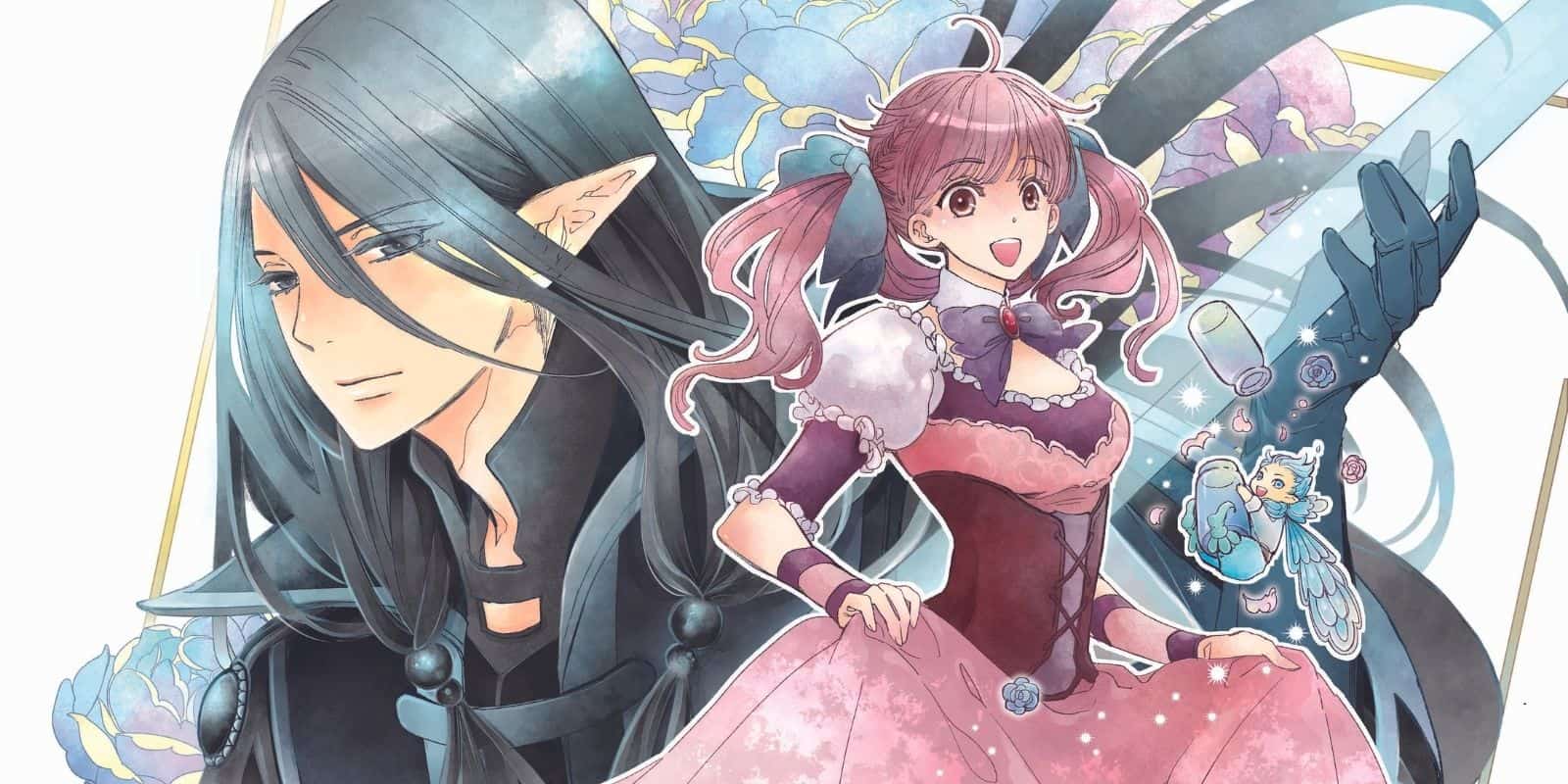“An adaptation of the Faust legend as a samurai period piece. Ichirui Hanri is an ordinary accountant servicing his lord. Though innocent, he is sentenced to death by hara-kiri after being entangled in a power struggle. A witch named Sudama appears and offers Hanri three wishes in exchange for his soul. Hanri accepts. Is it worth it?” (Ablaze)
One of four titles from Ablaze Manga that is acting as a celebration of Osamu Tezuka's works, “One Hundred Tales” is the first to hit print, set for a November 21, 2023 release, and is available digitally through Azuki.
Immediately striking when reading “One Hundred Tales” is Tezuka's comedic wit, which gives an otherwise contemplative story of personal redemption and endearing playfulness. While there are some era-specific jokes, none of the humor feels dated, despite the original release date of 1971. Additionally, Tezuka interjects a lot of parody into his work, breaking the fourth wall by including himself in a few panels, pop culture icons of the time (like Cristopher Lee), and even appearances by his other creations, such as Astro Boy. The self-aware approach of Tezuka's writing, which is comfortable with being silly while staying relevant decades later, is a testament to the timelessness of his work.
Check also this interview
The reinterpretation of classic literature also helps with the manga's continued relevancy, with themes grounded in basic human desires and wants. Protagonist Ichirui Hanri, though somewhat comically over-the-top, represents a rather broad stroke of humanity, with his quest for love, money, and freedom pushing him forward. Moreover, Ichirui Hanri has a strong sense of duty and an admirable moral compass, making him an honorable protagonist despite his generally cowardly and oafish persona. It is easy to laugh at the misfortunes that befall him, but the reader will ultimately cheer for his redemption.
The book's tone is also fast-paced and packed with content due to the narrative styling of Tezuka. While there are many details for readers to uncover, it is noteworthy that the book blends other historical elements and genres with equal talent. This includes an exploration of classic Japanese yokai, with the mischievous creatures playing a vital role in the story's development. Additionally, the book contains a few action sequences highlighting how Tezuka had mastery over all genres.

The aesthetics of manga have undoubtedly changed over the decades, and while the character depiction may seem simple by today's standards–especially considering Tezuka's purposeful downplaying of his characters for comedic effect–his true talent as an artist still shines throughout. Notably, the backgrounds of ancient Japan depict a land of utter beauty in a detailed art style few can replicate today. Panels that seem almost rudimentary and slapdash make way for such lush landscapes that the mangaka's balance of comedy-focused storytelling with sheer beauty makes the work utterly endearing.
Throughout the book, the work has a certain warmth; Tezuka comes across as a good friend who knows how to comfort, entertain, and make merry. It is quite a peculiar feeling that goes beyond wholesomeness with such comfortable familiarity in how Tezuka captivates his audience. Still, “One Hundred Tales” cements why the “godfather of manga” was such a beloved creator and influence to so many. Ablaze bringing some of these works of Tezuka to print is a service that manga fans should embrace with open arms.
















